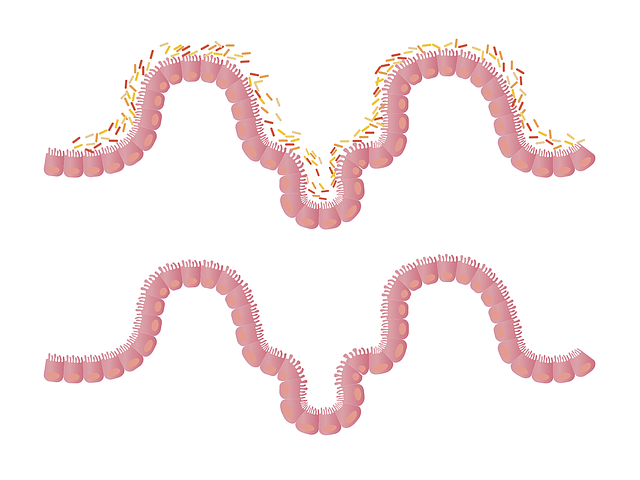Intestinal Bacteria in Research Articles: immune system and digestion
Earlier this month, the article by LittleLab4CF, Fecal Microbial Transplants and the book “Gut” discussed the importance of having and feeding the right bacteria in our GI tracts. Our gut bacteria influences our immune systems, the comfort/pain level we have when digesting foods, and our ability to extract nutrients from the foods we eat.
Here are some research articles that explain more.
Influence on immune system:
Accumulating evidence indicates that intestinal microflora has protective, metabolic, trophic and immunological functions and is able to establish a “cross-talk” with the immune component of mucosal immunity, comprising cellular and soluble elements. When one or more steps in this fine interaction fail, autoimmune or auto-inflammatory diseases may occur. Furthermore, it results from the data that probiotics, used for the treatment of the diseases caused by the dysregulation of the immune system, can have a beneficial effect by different mechanisms.
Consumption of a high-fat meal in both animals and humans results in both changes to the gut microbiota composition, as previously described, and significant increases in endotoxin concentrations.104,105 It has been suggested that the increases in systemic endotoxin levels may result from increased intestinal permeability caused by the compositional changes in the microbiota.103 Endotoxemia may then contribute to the low-grade inflammation, insulin resistance, adipocyte hyperplasia, and decreased β-cell function that characterize the metabolic syndrome.
Comfort when digesting food:
Bifidobacterium and Lactobacillus have been shown to be significantly less abundant in adult patients with constipation.8
Gut microbiota can affect intestinal motor functions either directly or indirectly via mediators released by the gut immune response, the end-products of bacterial fermentation, or intestinal neuroendocrine factors.12,14–16
Ability to extract nutrients from food:
Diet is one of the most important determinants of microbial diversity within the gut.12 A recent study comparing the gut microbiome of rural children in Burkina Faso with children in Italy showed that Bacteroidetes were far more abundant in the microbiomes of African children and that the specific types that were increased were well suited to harvest energy from their plant-rich diet.13
Stay tuned. Next in the series an article about Prebiotics and Probiotics in Food.




